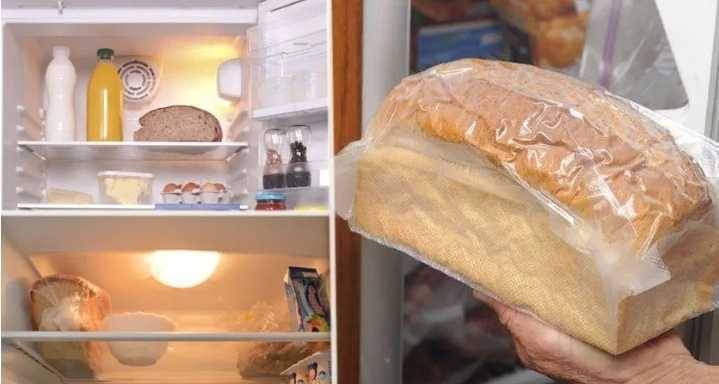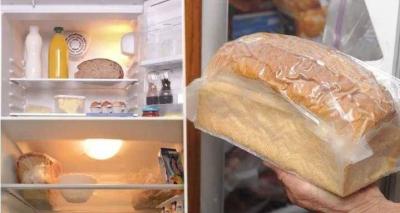For years, social media has been flooded with posts warning against putting bread in the refrigerator, claiming it causes cancer. However, these posts lack scientific basis. According to experts, all the information circulated in these posts is misleading. "Beware of freezing bread… it may cause cancer," is how these posts begin, cautioning users about the dangers of refrigerating bread, stating it turns into a lethal poison due to changes in its composition. The posts also claim that the plastic bags used to store bread in the refrigerator leave "dangerous residues that interact with the blood" and release "cancer-causing dioxins when exposed to low temperatures." However, the information contained in these posts is misleading and scientifically unfounded.
Food is typically placed in the refrigerator to preserve its quality and extend its shelf life; there is no scientific evidence that frozen foods cause cancer, as reported by "France Press." Bread, like other foods, has a longer shelf life when stored in the refrigerator. How is this so? "When bread or any type of food is placed in the refrigerator, chemical reactions slow down and the rate of bacterial growth decreases. How can bread become carcinogenic under these circumstances?" responded Professor of Chemistry Pierre Karam from the American University of Beirut to these claims. Karam continued, "From a chemical standpoint, cold does not affect the molecules of bread; cold does not change the composition of bread and the nutrients."
The posts claim that plastic bags react in the refrigerator and release the cancer-causing dioxin. What are dioxins? Dioxins are persistent environmental pollutants and a group of chemically related compounds that are highly toxic. Dioxins can cause reproductive and developmental issues, harm the immune system, interfere with hormones, and lead to cancer. Dioxins are present in the environment and accumulate in the food chain. How do dioxins reach food products? Dioxins result from burning processes and some industries that use chemical substances, and they can also occur naturally, such as in volcanic eruptions and wildfires. All of this releases dioxins into the air, settling on grass or in water, for example, and getting into animals, which consume them, leading to accumulation in their intestines and fatty tissues. Humans are often exposed to dioxins through meat, dairy products, and fish, and their bodies do not easily eliminate them.
Do plastic bags release dioxins? According to Pierre Karam, plastic bags cannot release dioxins unless they undergo burning or a chemical process. He stated, "What applies to food in the refrigerator also applies to other materials like plastic; refrigeration slows down their chemical reactions."
Are there recommendations for storing bread in refrigerators? According to Lebanese nutrition specialist Chantal Hanna, it is better to keep bread in the refrigerator in a plastic bag or in an airtight container, ensuring these containers meet food safety standards. Chantal Hanna indicates that the refrigerator helps maintain the quality of bread and extends its shelf life.
Why is the refrigerator the best place to store bread? In an interview with France Press, Bashir Hajjeh, a specialist in bread production and an official at the "Bake Lab" in Lebanon, noted that the refrigerator suitably preserves the properties of bread without causing spoilage. He explained in detail: "After bread leaves the oven, a natural process begins that affects the taste, moisture, and texture of the bread, known in English as 'bread staling.' If bread is not consumed in a short period, its taste will change and it will spoil." Hajjeh continued, "However, if bread is placed in the refrigerator in a tightly sealed container or a well-sealed plastic bag, this process will stop, and the bread will retain its qualities."
When we want to consume the bread? According to Hajjeh, if we want to eat the bread, "we take it out for a while from the refrigerator until it thaws and consume it directly or after reheating it," and there is absolutely no harm in that.




